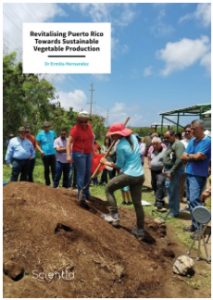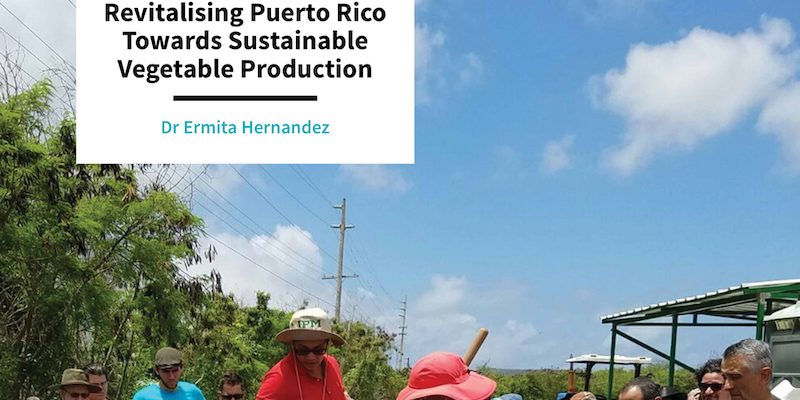
https://www.scientia.global/wp-content/uploads/Ermita_Hernandez.pdf
Currently, farming practices in Puerto Rico are largely unsustainable and little information exists to direct growers towards better practice. To address this issue, Dr Ermita Hernandez and her team at the University of Puerto Rico investigate sustainable management practices, including using enhanced crop varieties and improving soil health through the use of organic amendments.
In a world where the population is booming, the climate is changing, and wilderness areas are diminishing, the pressure for high-yield agricultural production is on the rise. Intensification is occurring on a global scale, with the island of Puerto Rico being no exception.
To exacerbate these stresses, climate change has undermined the situation, disrupting rain and drought cycles, amongst other things. The resulting warmer temperatures, coupled with poor management practices, are thought to be responsible for an increased spread of pests and disease, as well as the emergence of new ones.
To make matters worse, there has been very little attention given to improving the crop varieties grown in Puerto Rico. Puerto Rican produce lacks resilience to rising temperatures, drought and disease, meaning that a single bad year could have a serious impact on the local agricultural economy.
Scant availability of information regarding best management practices has resulted in the increased dependence on agrochemicals (pesticides and fertilisers) to obtain high yields. Poor management can lead to the soil becoming depleted of essential nutrients for crop growth, leading to a further increased need for fertiliser application. Agrochemical production costs both financially and environmentally – an unsustainable option for the future of farming systems.
Puerto Rico’s Tomato and Sweet Pepper Produce
Sweet peppers and tomatoes, both members of the Solanaceae family, are particularly important local produce in Puerto Rico. Together, their cropping range covers 47% of land dedicated to vegetable farming in Puerto Rico. The degree of sweet pepper farming is, however, experiencing rapid declines as yields have become unreliable and farmers simply can’t take the risk.








